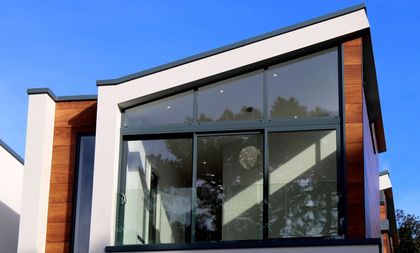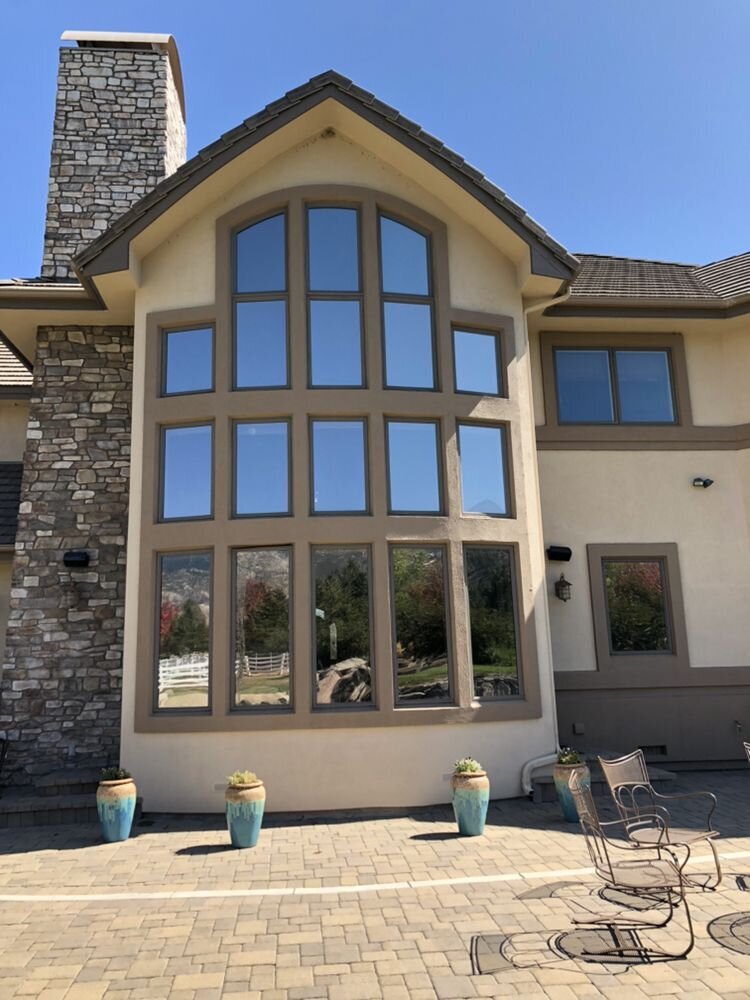Residential Window Tint: The Eco-Friendly Solution for Your Home
Residential Window Tint: The Eco-Friendly Solution for Your Home
Blog Article
Exactly How Residential Window Tinting Enhances Your Home's Energy Effectiveness
Residential window tinting offers a compelling option for property owners looking for to enhance energy effectiveness within their home. By applying specialized movies to windows, it efficiently lowers heat transfer, consequently maintaining interior temperatures and minimizing the demand for excessive home heating or cooling. This not only stops energy usage but likewise gives a more comfy setting by reducing glow. Recognizing the nuances of how tinting works and picking the appropriate type for your home can be critical. Oddly, what variables should one consider before making this investment?
Understanding Window Tinting
Understanding window tinting is necessary for home owners looking for to boost both convenience and power effectiveness in their home. Residential Window Tint. Home window tinting includes the application of a thin film to the interior or outside surface area of glass home windows. This film can considerably modulate the quantity of sunlight and warmth that gets in a home, thus affecting interior environment conditions
There are different kinds of window tinting movies readily available, each with distinctive residential or commercial properties. Colored films absorb solar power, while reflective movies deflect it away from the glass surface area. Ceramic movies use a balance of presence and warmth being rejected, making them a popular selection amongst property owners. The effectiveness of window tinting is frequently measured by its Visible Light Transmission (VLT) percent, which suggests how much light can travel through the film.
Benefits of Power Effectiveness
Home window tinting not only boosts looks however additionally plays a considerable duty in improving power efficiency within household spaces. By minimizing heat transfer with home windows, tinted movies develop a much more secure indoor climate, which can bring about significant decreases in power consumption for cooling and heating. This energy performance equates into lower utility expenses, offering homeowners with considerable lasting savings.

Furthermore, window tinting boosts the comfort of living spaces. By decreasing glow and blocking unsafe UV rays, colored windows develop a more positive atmosphere, which can result in boosted wellness for occupants. The defense against UV rays additionally helps maintain furniture and floor covering from fading, contributing to the longevity of family items.
Just How Tinting Works
Tinting movies operate with a combination of innovative materials and modern technologies developed to control the quantity of solar energy getting in a home. Primarily made up of polyester, these films commonly incorporate ceramic or metal particles that mirror and absorb heat. This double capacity allows Website them to substantially reduce the penetration of ultraviolet (UV) rays and infrared radiation while allowing visible light to go through.
The performance of home window tinting is measured by its solar warm gain coefficient (SHGC), which shows just how much solar energy is transferred via the home window. Lower SHGC values are better as they denote higher warmth rejection. Additionally, window colors can include a variety of shades, enabling home owners to tailor their aesthetic preferences while improving power performance.
In addition, these films serve as a barrier, stopping warm loss throughout cooler months by mirroring indoor heat back into the home. This thermal insulation result complements the cooling benefits acquired during warmer months, adding to a well balanced interior environment year-round. By taking care of solar energy effectively, domestic window tinting not only enhances comfort but likewise plays check this a crucial function in minimizing power usage and reducing utility bills.
Choosing the Right Color

There are numerous sorts of window movies offered, consisting of dyed, metalized, and ceramic. Dyed movies are cost-efficient but might have restricted sturdiness. Metalized movies offer much better heat rejection but can interfere with electronic signals. Ceramic movies offer outstanding heat control without jeopardizing visibility and are highly resilient, making them a prominent selection.
Visible light transmission (VLT) is one more critical variable, as it indicates the quantity of all-natural light that can go through the tinted glass. Homeowners ought to select a tint with a VLT that complements their lighting preferences while still offering sufficient glare reduction.
Additionally, assessing the solar heat gain coefficient (SHGC) can help determine how well a tint can obstruct warmth from sunshine. A lower SHGC suggests better heat control, ultimately boosting energy efficiency.
Installment and Upkeep Tips
Correct installment and upkeep are important elements in maximizing the advantages of property home window tinting. Experts additionally use specialized methods and devices, which can enhance the toughness and effectiveness of the tint.
Complying with installment, upkeep is essential to prolong the life of the window film. It is suggested to wait at least 30 days prior to cleaning up the colored home windows to permit the glue to heal fully.
Addressing these concerns without delay can stop additional damage and keep power effectiveness. By adhering to these installment and upkeep ideas, property owners can ensure their home window tinting proceeds to supply considerable power cost savings and comfort for years to come.
Final Thought
In verdict, residential window tinting offers as a reliable service for enhancing energy efficiency within homes. By lowering warmth transfer and blocking unsafe UV rays, window movies contribute to decrease energy usage and improved interior comfort. The option of ideal tinting products, together with appropriate installation and upkeep, better makes the most of these benefits. Eventually, home window tinting stands for a lasting financial investment that not only reduces utility costs yet additionally promotes a comfortable imp source living setting throughout the year.
Window tinting involves the application of a thin film to the interior or exterior surface area of glass home windows. By reducing heat transfer through windows, tinted films create a more stable indoor climate, which can lead to considerable reductions in power usage for home heating and air conditioning.The effectiveness of window tinting is determined by its solar warm gain coefficient (SHGC), which shows exactly how much solar power is transferred via the window. By taking care of solar energy successfully, property window tinting not just improves comfort but also plays a vital role in decreasing power consumption and decreasing energy bills.
By minimizing warm transfer and obstructing dangerous UV rays, home window movies contribute to lower energy usage and boosted indoor comfort.
Report this page